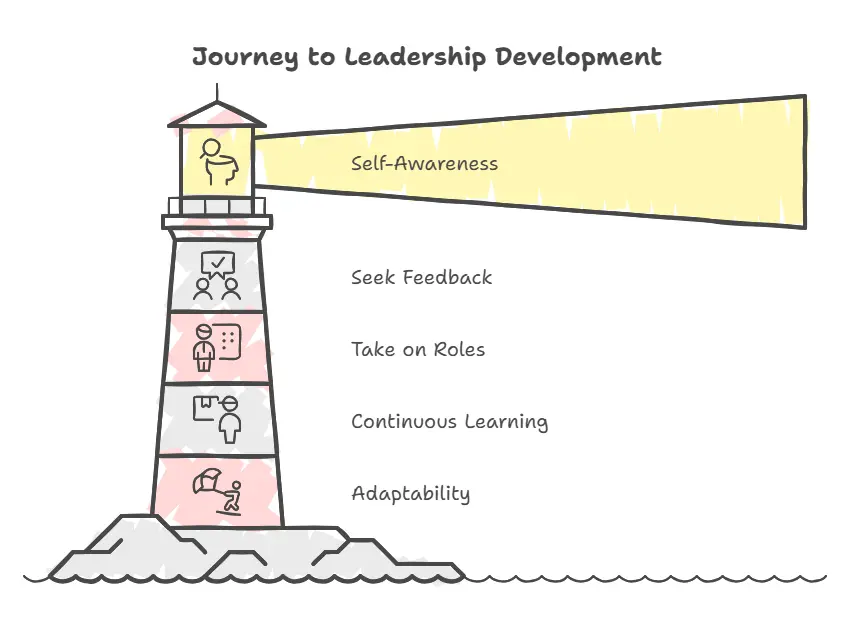Table of Contents
Leadership isn’t about titles or making decisions—it’s about inspiring others, being accountable, and driving a team to victory. Experience and technical skills are important, but your personal qualities truly determine how successful you will be as a leader. People follow naturally the people who are self-assured, fair-minded, empathetic, and enthusiastic. Whether you’re teaching a class at school, managing a team at work, or dreaming of being a future CEO, learning the key personality traits of great leaders can get you on the right path. In this article we are providing a few personality traits that make you a great leader.
Begin Your Personality Transformation- Enroll Today!
Essential Personality Traits Of Great Leaders
Confidence
Good leaders believe in their decisions and themselves. Confidence builds trust, enables one to persevere on despite obstacles, and motivates teams to keep on. It’s not conceit; it’s believing in your goal without shutting yourself up from critique.
Integrity
Ethical, honest, and truthful leaders are integrity ones. Their squad respects and loyalties them as they follow what is right even if they are alone to see it done.
Empathy
Sensitive to the views and emotions of their employees, empathetic leaders also This fosters a pleasant atmosphere whereby people feel appreciated and heard.
Resilience
Though all leaders fail, good ones recover better. They remain cool under pressure, grow from mistakes, and keep on with a positive mindset.
Vision
Great leaders see something. They are headed somewhere and know how to motivate others to follow. They’re leading with intent; they’re not reacting.
Responsibilities
One of the most important qualities is realizing your own and your team’s results’ responsibilities. Leaders who own their mistakes and participate in team accomplishments foster a culture of trust and development.
Adaptability
Change is inevitable, thus good leaders react fast. It can be a fresh challenge or changing team dynamics, but they remain adaptable and support others in doing the same.
Communication Skills
Good listening, clear expression, and motivating others are important. Strong communicators keep everyone in the loop and on track.
How To Develop and Strengthen Leadership Traits?
Strong leadership development calls for ongoing self-awareness, experience, and education. Consider first your areas of strength and opportunities for development. Ask others for comments to help you understand your style. Take on leadership roles to hone communication, problem-solving, and decision-making—even for modest tasks. To grow from their experiences, pick up book reading, workshop attendance, and observation of successful leaders. Above all, as you hone your leadership over time, remain flexible and receptive to change.
You’re not born to be a leader—you can grow one over the years. This is how to do it:
- Identify strengths and weaknesses.
- Seek feedback and utilize it in building yourself up.
- Take over a project, volunteer to plan an event, or mentor your co-worker.
- Read leadership books, listen to inspirational speeches, and observe fantastic leaders in your life.
- Pay attention to how you cope with stress, respond to other people, and express emotions.
Boost Your Skills & Kickstart Your Career!
Employability and Personality Development Course by Entri App: Enhance your communication, confidence, and job-ready skills to excel in your career.
Join Now!Common Leadership Pitfalls to Avoid
Being a leader means you should be alert for possible hazards that can compromise your performance. Micromanaging can stifle innovation and confidence; a lack of empathy might cause team dissension. Ignoring difficult talks about performance or conflict could imply problems left to fester; inconsistent decision-making or expectations would cause uncertainty. Finally, always be open to learning and development since overconfidence can blind you to required change and helpful comments.
Even strong leaders can stumble. Be aware of these common mistakes:
-
Trust your team instead of controlling every detail.
-
Ignoring others’ feelings can damage relationships and morale.
-
Address conflicts or performance issues directly and respectfully.
-
Changing rules or expectations can confuse and frustrate your team.
-
Being too sure of yourself can close you off to new ideas or necessary changes.
Begin Your Personality Transformation- Enroll Today!
Conclusion
Effective leadership is not perfect—it’s being authentic, intentional, and continuously learning. The most effective leaders have strong character strengths that allow them to get people involved, break through obstacles, and generate momentum forward. As a student, a business professional, or a team member, developing these personality strengths can allow you to become a leader others will follow. Leadership starts with being yourself—not just what you do.
Boost Your Skills & Kickstart Your Career!
Employability and Personality Development Course by Entri App: Enhance your communication, confidence, and job-ready skills to excel in your career.
Join Now!Frequently Asked Questions
What’s the most important leadership trait?
There’s no single answer, but many consider integrity, communication, and vision to be among the most crucial.
What if I’m introverted? Can I still lead?
Absolutely! Many successful leaders are introverts. They often lead with deep thinking, active listening, and thoughtful communication.
How do I handle failure as a leader?
See failure as a learning opportunity. Reflect on what went wrong, be honest with your team, and use it as a chance to grow and improve.
Can anyone become a leader?
Yes! Leadership is a skill and mindset that can be developed with practice, self-awareness, and commitment.
What if I make a mistake as a leader?
Mistakes are part of the leadership journey. The key is to acknowledge the error, take responsibility, and focus on learning from it. Being transparent about mistakes shows accountability and helps build trust.
How can I develop a strong vision as a leader?
A strong vision comes from understanding your goals, your team’s strengths, and your industry’s trends. Regularly seek feedback, stay informed, and ensure your vision is clear, actionable, and aligned with your team’s values.












